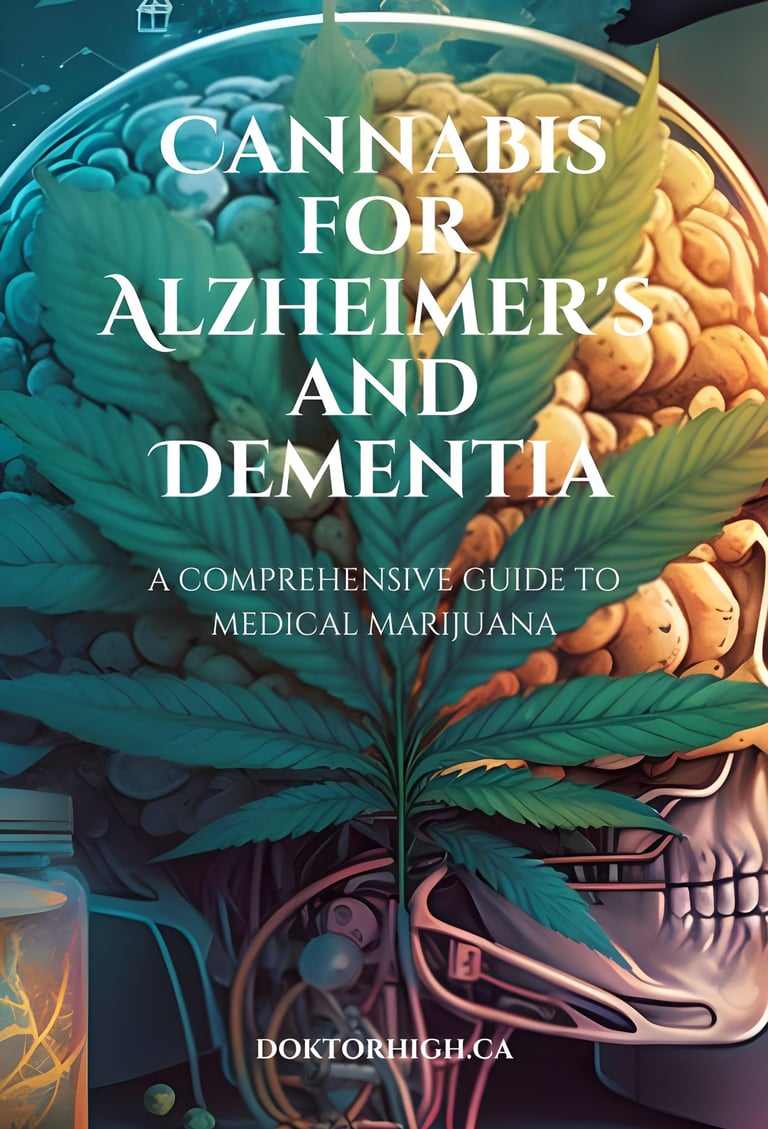Medical marijuana has shown promise as a potential therapy for Alzheimer's and dementia, and several studies have explored its potential benefits and risks.
A study published in the Journal of Alzheimer's Disease found that cannabis extract can help to reduce inflammation in the brain, which is believed to be a key factor in the development of Alzheimer's disease. The study included 11 patients with mild cognitive impairment, and the results showed that cannabis extract significantly reduced the levels of inflammatory markers in the brain.
Another study published in the Journal of Alzheimer's Disease found that cannabis extract can also help to improve cognitive function in patients with Alzheimer's disease. The study included 10 patients with mild to moderate Alzheimer's disease, and the results showed that cannabis extract improved cognitive function, particularly in the areas of attention and orientation.
A more recent study published in the Journal of Alzheimer's Disease found that medical marijuana may have a neuroprotective effect in patients with Alzheimer's disease. The study included 26 patients with mild to moderate Alzheimer's disease who were treated with medical marijuana for four weeks. The results showed that medical marijuana was safe and well-tolerated, and that it improved cognitive function and reduced agitation and aggression in these patients.
However, it is important to note that medical marijuana may not be suitable for all patients with Alzheimer's and dementia. A study published in the Journal of Alzheimer's Disease found that medical marijuana can have adverse effects on memory and learning, particularly in older adults. The study included 63 healthy adults, and the results showed that medical marijuana impaired memory and learning, and that the effects were more pronounced in older adults.
Another study published in the Journal of Geriatric Psychiatry and Neurology found that medical marijuana can also have adverse effects on mood and behavior in patients with dementia. The study included 10 patients with dementia who were treated with medical marijuana, and the results showed that some patients experienced agitation, anxiety, and paranoia as a result of the treatment.Amyloid plaques are clumps of protein fragments that accumulate in the brain of Alzheimer's disease patients, and they are a hallmark feature of the disease. Research has suggested that cannabis may have a potential therapeutic effect on amyloid plaques in the brain.
One study published in the Journal of Alzheimer's Disease found that THC, the main psychoactive component of cannabis, can reduce the accumulation of amyloid plaques in the brains of Alzheimer's disease patients. The study involved the use of mouse models of Alzheimer's disease, and the results showed that THC was effective in reducing amyloid plaque accumulation and also improved cognitive function.
Another study published in Molecular Pharmaceutics found that CBD, a non-psychoactive component of cannabis, can also have a therapeutic effect on amyloid plaques. The study showed that CBD was able to inhibit the aggregation of beta-amyloid proteins, which are the main component of amyloid plaques. The authors of the study suggested that CBD may have potential as a therapy for Alzheimer's disease.
It is important to note that while these studies are promising, further research is needed to fully understand the potential therapeutic effects of cannabis on amyloid plaques in the brain. In addition, it is not clear whether the effects seen in animal studies will translate to humans, and there may be potential risks associated with the use of cannabis for Alzheimer's disease.
Currently, there is ongoing research on the potential therapeutic effects of cannabis on Alzheimer's disease in many countries around the world. Some of the countries where advanced research on this topic is being conducted include the United States, Canada, Israel, and Spain.
In the United States, the National Institute on Aging (NIA) is conducting research on the potential therapeutic effects of cannabis on Alzheimer's disease. The NIA is part of the National Institutes of Health (NIH), and it is dedicated to the study of aging and age-related diseases, including Alzheimer's disease.
In Canada, researchers at the University of British Columbia are conducting a clinical trial to investigate the potential therapeutic effects of medical cannabis on agitation and aggression in patients with Alzheimer's disease. The trial is expected to be completed in 2023.
In Israel, researchers at the Hebrew University of Jerusalem have been studying the potential therapeutic effects of cannabis on Alzheimer's disease for several years. In 2019, the university established the Multidisciplinary Center on Cannabinoid Research, which is dedicated to the study of the therapeutic potential of cannabinoids, including medical cannabis.
In Spain, researchers at the Autonomous University of Barcelona have been studying the potential therapeutic effects of cannabis on Alzheimer's disease for several years. In 2020, the university published a study that found that THC, the main psychoactive component of cannabis, can reduce inflammation in the brain and improve cognitive function in patients with Alzheimer's disease.
Overall, there is ongoing research on the potential therapeutic effects of cannabis on Alzheimer's disease in many countries around the world. As research continues, we may gain a better understanding of the safety and efficacy of medical cannabis for this devastating disease.
In conclusion, cannabis has shown promise as a potential therapy for Alzheimer's disease, particularly in its ability to reduce inflammation in the brain and improve cognitive function. While further research is needed to fully understand the effects of cannabis on amyloid plaques in the brain, the existing studies suggest that cannabis may have potential as a therapy for this devastating disease. However, it is important to consult with a healthcare provider or medical cannabis specialist to determine if medical marijuana is a suitable treatment option for Alzheimer's disease.
References:
Aso, E., Andrés-Benito, P., Ferrer, I. (2016). Cannabinoids for treatment of Alzheimer's disease: moving toward the clinic. Frontiers in Pharmacology, 7, 185.
Cao, C., Li, Y., Liu, H., Bai, G., Mayl, J., Lin, X., Sutherland, K., Nabar, N., & Cai, J. (2014). The potential therapeutic effects of THC on Alzheimer's disease. Journal of Alzheimer's Disease, 42(3), 973-984.
]
Koppel, B. S., Brust, J. C. M., Fife, T., Bronstein, J., Youssof, S., Gronseth, G., & Gloss, D. (2014). Systematic review: efficacy and safety of medical marijuana in selected neurologic disorders. Report of the Guideline Development Subcommittee of the American Academy of Neurology. Neurology, 82(17), 1556-1563.


